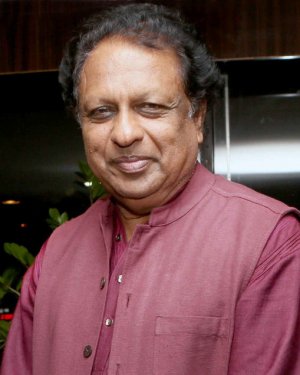
After Verdict, Jadhav a Pawn in Pak Hands Still
History has only rare instances of two parties to a dispute being jubilant over the same verdict. Being a United Nations body, the International Court of Justice (ICJ) has performed such a miracle in the Kulbhushan Jadhav case. India considers it a case of truth and justice prevailing, while Pakistan appreciates that Jadhav was not acquitted, released or returned to India. But obviously it was not a happy outcome for Pakistan as shown by the fact that the Pakistan’s nominee to the ICJ voted against the verdict. But the fact remains that, in fact, the verdict has made no material difference to Jadhav, India or Pakistan. Jadhav is in a Pakistan prison, sentenced to death, India has not set its eyes on him and Pakistan has Jadhav as a pawn in its hands to negotiate with India. India has won the case, but Pakistan still has the loot in its possession.
India has won a legal and moral victory over Pakistan as all its legal contentions put forward brilliantly by the eminent Jurist, Harish Salve were upheld by the court. The first point raised by Pakistan was the question of jurisdiction as India had resorted to go to the ICJ without exploring the possibility of considering a mercy petition under the constitution of Pakistan or resorting to other methods like arbitration provided for in the Vienna Convention. The court rejected Pakistan’s objection to India going to the ICJ by stating that the appeal process in Pakistan had considerable uncertainty and that it was not mandatory to explore other dispute settlement processes before going to the ICJ.
Curiously, Pakistan questioned the nationality of Jadhav on the ground that his Indian passport was not produced after repeatedly accusing Jadhav of being an Indian spy and terrorist. This puerile argument was totally demolished by the court.
The next Pakistani contention was that persons engaged in espionage or terrorism were not protected by the Vienna Convention and put forward a bizarre point that a bilateral agreement between India and Pakistan in 2008 had overtaken the Vienna Convention. Both these arguments were found contrary to the letter and spirit of the law and rejected out of hand.
Coming to the heart of the matter as to who had violated the Vienna Convention, Pakistan was nailed because it had failed to inform India about the arrest of Jadhav for a long period and more seriously, failed to give India consular access to the accused. Pakistan was aware that Jadhav was an Indian citizen and by failing to inform the Indian authorities of his arrest and denying consular access, Pakistan had breached the Vienna Convention.
Pakistan alleged that Jadhav was sent into Pakistan to assist the Baluch rebels and quoted from statements by Prime Minister Narendra Modi and National Security Adviser Ajit Doval, implying that India was supporting covert operations in support of Baluchistan. But the court held that these charges were irrelevant because the application of the Vienna Convention was unconditional and the requirements of consular access should have been met even if the allegations were true.
As for the substance of the court order, ICJ reiterated that the execution order of Jadhav, passed by a military court should not be implemented till the allegations were thoroughly reviewed by Pakistan. The court did not spell out the methodology for such a review, but it was stressed that the review should be effective. The court also directed Pakistan to legislate the necessary laws, in case the present system did not permit a review of a decision of the military court. The court laid down that India would be free to approach the court again if the review process by Pakistan was not effective or unsatisfactory. In other words, it was clear that Jadhav should not be executed unless a review of the case proved his guilt to the satisfaction of India and, if necessary, by the ICJ.
In short, India has secured a reprieve, most probably a long one, for Jadhav from execution. That was the primary purpose of India as bilateral approaches did not seem to have any impact on Pakistan. There is no clarity about the review process ordered by the court, but it cannot be a kangaroo court since the matter has received international attention. Though it is India’s policy not to internationalize India-Pakistan issues, a humanitarian exception applied in this case has paid off. In addition, the court has removed the cobwebs that Pakistan had created about the applicability of the Vienna Convention by establishing that it was Pakistan and not India, which had violated the Convention. Here lies the victory of India through triumph of truth and justice.
But after all is said and done, the ball is in Pakistan’s court and it still holds all the cards in the future process as there is no order to acquit Jadhav or to release him. Nor is there any time limit for the review process to be completed. Pakistan can just wait it out till it gains some concessions from India on core issues. That explains the jubilation in Pakistan.
Imran Khan appeared to wave some olive branches to India just before the verdict was pronounced. The discussions on the Kartarpur corridor was concluded successfully, the airways over Pakistan were opened and the mastermind of the Mumbai attacks, Hafiz Sayeed was arrested once again. Perhaps, he made these gestures to establish his good intentions towards India before his forthcoming visit to Washington. Pakistan wants a dialogue with India and India is not likely to budge unless Imran Khan gives up terrorism. It remains to be seen how much of a pawn Jadhav will be in the India-Pakistan chess game.
